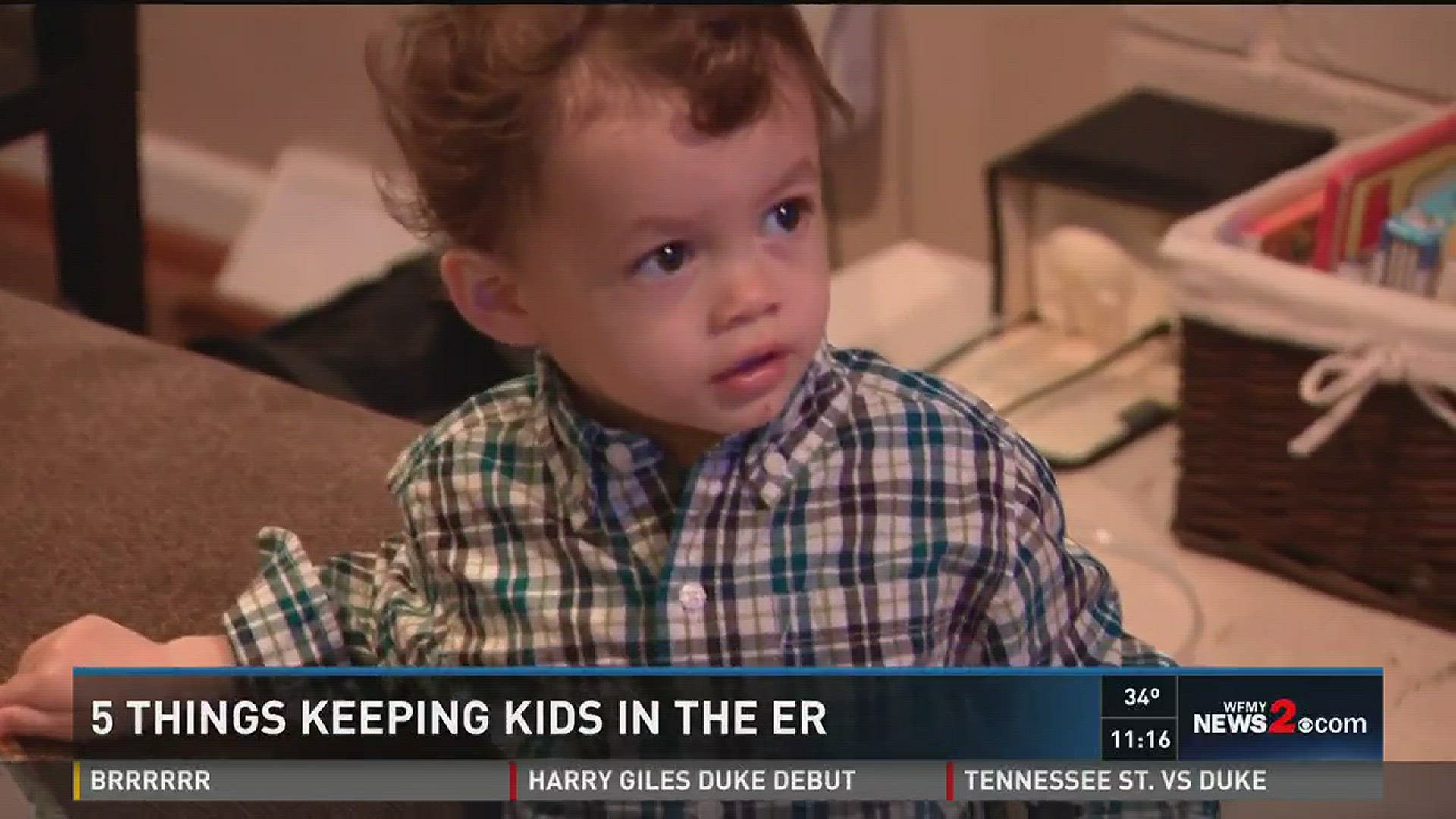CHARLOTTE, N.C. -- It is cuteness overload in the Ridley house, where 2-year-old Miles and 4-month-old Jameson keep mom Natalie busy.
“It’s two people totally dependent on you all the time, you have to watch all the time,” Ridley says.
Literally all the time-- the worrying is constant, too.
“Oh, I mean all the time you’re thinking about laying in bed, oh my gosh, what if I turn my back and this happened.”
NBC Charlotte talked to two pediatric ER doctors in town about what actually does happen: the five most common things that land families in the ER.
Dr. Cody Carpenter works in the emergency department at Novant Health.
“It’s really when people let their guards down that some of the more serious things can happen.”
Dr. Emily McNeil works at Levine's Children's Hospital and said, “They can do more physically than we give them credit for and those two to three seconds of not being attended is the time they’re going to roll off the furniture and we see that all the time."
The other thing these docs see all the time, especially around the holidays, family members that don’t realize they’re endangering your kids.
Dr. McNeil adds, "Something I see very commonly is when family comes to visit, holidays and grandma has all her medications their in a suitcase or on floor and very accessible to small children."
Even meds meant for kids can pose a problem.
"I think it's easy to overdose medicines or give an incorrect dose," Carpenter says.
Our experts say go by a child’s weight, not age, and to use a syringe, as it’s the best way to ensure your child gets the right amount.
Another major issue is making sure your child doesn’t get into household items like laundry detergent.
"I don’t even buy them because I know that has been a problem for little kids," Ridley admits.
"Pop them in their mouth, had one come in the other day where it got in their eye," Carpenter remembers.
Ten-percent of kids at Charlotte-Mecklenburg Schools suffer from asthma and respiratory therapists say many of their parents don’t know how to help their kids, often giving the wrong medicine and not using the inhaler properly. Most kids need what’s called a spacer to get all the medicine where it needs to be, and the wrong amount can be deadly.
McNeil says, "Awareness is key. It's not going to protect every child from every injury."
But she says it might just keep you out of the ER.
The doctors NBC Charlotte talked to say very often your first line of defense is to call poison control, as it could save you a trip to the ER.

